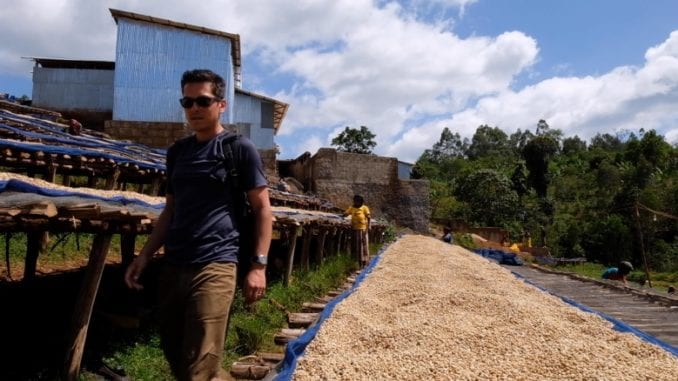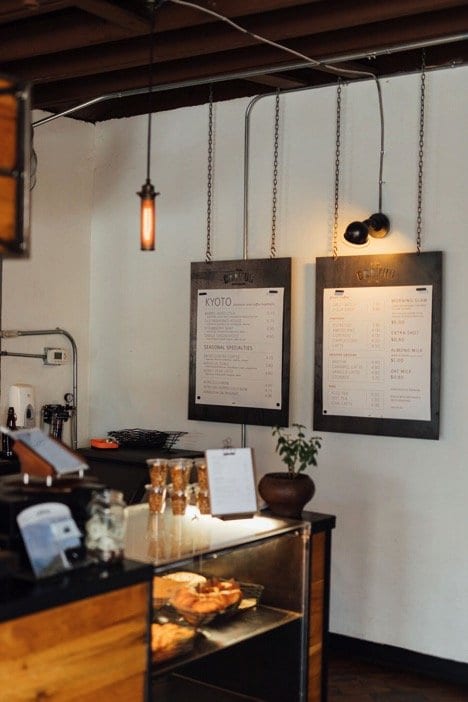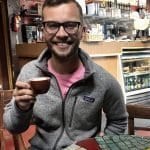
We pick up our conversation with Phil Goodlaxson, owner of Corvus Coffee Roasters in Denver.
BY JASON HUFFNAGLE
SPECIAL TO BARISTA MAGAZINE
Photos courtesy of Phil Goodlaxson
In part one of our interview with Corvus Coffee Roasters owner Phil Goodlaxson, we talked coffee beginnings, opening a business, and the coffee scene in Denver. Here in part two, Phil takes a deep dive on direct trade and his philosophy on sourcing coffee.
Jason Huffnagle: You mentioned your passion for direct trade. Can you tell me more about that? And how have you aligned your commitment to quality with also making a direct and very real difference in the lives of farmers?
Phil Goodlaxson: We have a couple of fundamental principles around direct trade. First, we do no sort of charity mechanisms with our direct-trade sourcing. I want to repair broken economic systems in coffee, not supplement them with charity. I think this can often do more harm than good and is based on the premise that we can help farmers better than they can help themselves. So we don’t build things, or give money for specific agendas. We pay premiums for coffee above our already high price to farmers who have demonstrated for several years that they care about growing and reinvesting in their business. We don’t tell them how to spend that money because our view is that the goal of sustainability is reached individually, and in different ways, at each farm.
The second way we help with sustainability/quality––quality being the primary agent for sustainability in my mind––is by encouraging or paying for better micro-lotting or processing. Some of that entails challenging producers to create better coffee through methods we either know of or they would like to try but view as risky, and then paying them for those costs, and creating a new level of quality that they are able to consistently reach in the future.
Third, we view sourcing as finding good people more than finding good coffees. Anyone can get lucky and have excellent coffee, so a single excellent crop isn’t a comprehensive indicator of a good partner. We’re looking for people that have the type of mindset that disconnects them from external circumstances and all the things that can go wrong at a farm. To put it another way: there are people who are always going to be subject to environmental conditions, and there are people who make their own luck. We’re looking for people in that second group.
There’s a saying we have here at Corvus: The pursuit of excellence has self-evident merit. To me this means that the pursuit of something great has value because it requires you to be better than you were yesterday. And in terms of sourcing it means that we view our company as the outlet for this type of coffee farmer. We’re looking for people who produce excellent coffee because they believe that their work matters even if they aren’t rewarded fairly for it––being a company who finds these people and rewards them for it is how we make a difference.
On a different note, I was struck by something you said in an earlier conversation we had. You said that, for you, “Business is an art form.” Can you elaborate?
I think when you’re in a craft-focused product business, it’s easy to undervalue the business side. We focus primarily on how good we can make the product and then charge what we have to charge, versus focus on what product we know will sell best based off focus groups or other such things. However, I’m of the mindset that excellence can not be compartmentalized and neither can craft.
You are a master of craft and seek excellence in all that you do, or you’ll never achieve what you’ve set out to do. So, while I prioritize craft and excellence in our product (coffee), I try to apply the same mindset to our business. Leadership development, learning to create a team oriented around values, and having sound marketing and financial strategies that are innovative and creative are all things that I am trying to learn. I view them all coming together as an art form as much as sourcing, roasting, packaging, and selling excellent coffee.

You guys have a great blog. I was reading one of your entries from 2012 entitled Trust and Visibility, and in it you said, “Our industry is built on trust.” Can you elaborate? And do you think there ought to be an accountability component between members of the industry?
I think what I meant there was we have a unique supply chain in terms of geographical distribution of all the moving parts. Farmers have to trust that their coffee will be handled well, and customers have to trust that roasters are being forthright with the stories they tell about sourcing coffee.
I do think that accountability is important, and sometimes I am frustrated by the overuse and quick adoption of the labels, such as direct trade. I see this thrown around by people who have gone on a single field trip with an importer to visit a farm they bought from once or twice, and it does irk me because of all that work we put in. But the flip side of that is that things like sustainability and quality are so subjective.
Both of these concepts can be reached in so many different way by roasters, importers, exporters, and farmers. I think that we need to not bottle some of these things into a single definition because the danger is that we start creating our pet solutions and then start forcing farmers into them. This is the downside to the very successful businesses of organic and fair trade certifications. They have done so many positive things in terms of awareness and accountability, especially for larger roasters, but they don’t work for many farmers.
What will really correct the industry is roasters doing business in an earnest, honest, and forthright manner that creates better prices and sustainability while also constantly demanding better quality and creating a customer base that demands better coffee. You do this through buying from importers who have this agenda, by being a shop that buys from a roaster with this agenda, or any number of ways these goals can be prioritized at whatever position you are in on the coffee-consuming side of the equation.
My point is that sustainability has to be individual and at the farm level. I use the analogy of the boy walking along the beach throwing dying starfish back into the water. An old man comes along and asks him what he is doing, to which he replies, “Saving the starfish!” The old man laughs and says, “This is ridiculous! There are thousands of dying starfish on this beach! You’ll never make a difference.” To which the boy responds by picking up another starfish, throwing it back in, and replying, “It makes a difference to this one.”
Each one of us is only able to make a small difference in coffee, and no one agenda can solve all the problems for all the farmers. But if each person in coffee worked as hard as they should to make a difference, buy good coffee, and create sustainability for the farmers they worked with, the coffee industry would be in a far better place! I think accountability would be good, and I don’t know what it would look like, but accountability is only a Band-Aid for each person in coffee doing more to create sustainability in the way they are most able.

ABOUT THE AUTHOR
Jason Huffnagle is a freelance writer for Barista Magazine who has worked in coffee as a barista for six years. Having left his “adult job” in the U.S. Senate, the Alaska native spent several months traveling throughout Europe. You can read about his coffee-fueled travels and other exploits by following him @jasonhuffnagle on Twitter.

